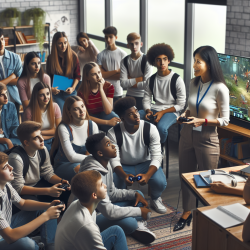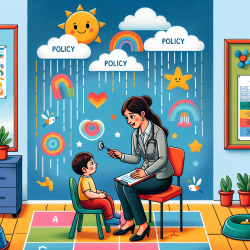Introduction
In the ever-evolving landscape of education, understanding the dynamics of adolescent behavior is crucial. A recent study titled "Do Your School Mates Influence How Long You Game? Evidence from the U.S." sheds light on the peer influence on video gaming habits among adolescents. This research provides valuable insights for educators and practitioners aiming to foster healthier gaming habits among students.
Understanding Peer Influence
The study highlights that peer influence plays a significant role in shaping video gaming behaviors, particularly among male adolescents. It reveals that an additional hour of gaming by older grade-mates results in a 0.47-hour increase in gaming time among male students. This finding underscores the importance of peer dynamics in adolescent behavior.
Implementing Research Outcomes
For practitioners in the field of education, leveraging these insights can lead to impactful interventions. Here are some strategies to consider:
- Peer-Led Initiatives: Encourage students to participate in peer-led programs that promote balanced gaming habits. This can include peer mentoring or group discussions on the impact of gaming.
- Collaborative Learning: Foster environments where students can collaborate on projects that integrate gaming with educational content. This approach can transform gaming from a solitary activity into a collaborative learning experience.
- Parental Involvement: Engage parents in workshops that highlight the role of peer influence in gaming habits. Educating parents on how to support positive peer interactions can reinforce healthier gaming behaviors at home.
Encouraging Further Research
While the study provides valuable insights, it also opens avenues for further research. Practitioners are encouraged to explore the following areas:
- Cross-Cultural Studies: Investigate how cultural differences influence peer effects on gaming habits. Understanding these nuances can help tailor interventions to diverse student populations.
- Gender Differences: Explore why peer influence is more pronounced among males than females in gaming contexts. This could lead to gender-specific strategies for promoting balanced gaming habits.
- Longitudinal Studies: Conduct long-term studies to assess the lasting impact of peer influence on gaming behaviors. This can provide insights into the sustainability of interventions.
Conclusion
The findings from "Do Your School Mates Influence How Long You Game? Evidence from the U.S." offer a powerful tool for educators and practitioners seeking to influence adolescent gaming habits. By understanding and harnessing peer influence, we can create environments that promote healthier gaming behaviors and, ultimately, support the holistic development of students.
To read the original research paper, please follow this link: Do Your School Mates Influence How Long You Game? Evidence from the U.S.










